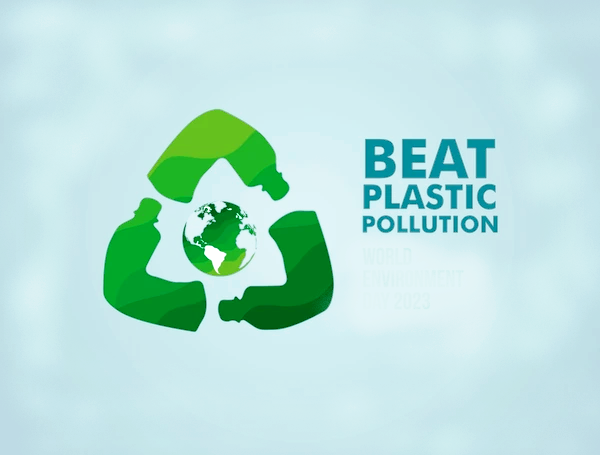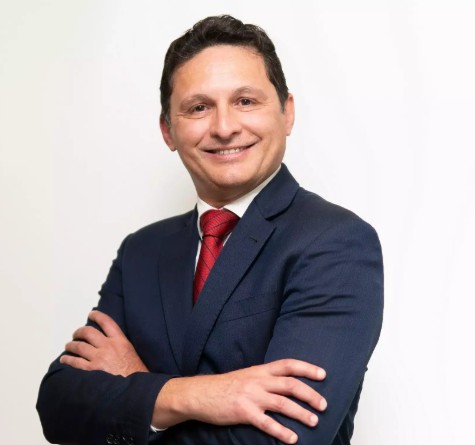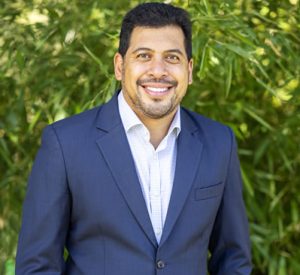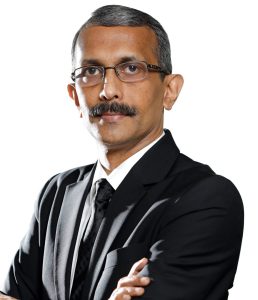 World Environment Day 2025 shines a crucial light on the urgent need to address the escalating plastic pollution crisis. This year, the commitment to challenge and transform our relationship with plastics takes centre stage, echoing the global pledge established in 2022 to eliminate plastic pollution through a comprehensive treaty. With the rallying theme “Putting an End to Plastic Pollution”, the campaign aspires to inspire worldwide action against the detrimental effects of plastic waste on our ecosystems, wildlife, and human health.
World Environment Day 2025 shines a crucial light on the urgent need to address the escalating plastic pollution crisis. This year, the commitment to challenge and transform our relationship with plastics takes centre stage, echoing the global pledge established in 2022 to eliminate plastic pollution through a comprehensive treaty. With the rallying theme “Putting an End to Plastic Pollution”, the campaign aspires to inspire worldwide action against the detrimental effects of plastic waste on our ecosystems, wildlife, and human health.  “On this World Environment Day, we reaffirm our commitment to driving sustainable change by supporting innovative climate-tech companies. Our mission is to connect visionary entrepreneurs with the capital they need to build a greener, cleaner future for India and beyond, helping accelerate the journey to net zero. Together, through collaboration and conscious investment, we can speed up the transition to a low-carbon economy and create a lasting environmental impact. Let’s use this day to inspire action and embrace sustainability in the small day-to-day choices we make in our lives.”
“On this World Environment Day, we reaffirm our commitment to driving sustainable change by supporting innovative climate-tech companies. Our mission is to connect visionary entrepreneurs with the capital they need to build a greener, cleaner future for India and beyond, helping accelerate the journey to net zero. Together, through collaboration and conscious investment, we can speed up the transition to a low-carbon economy and create a lasting environmental impact. Let’s use this day to inspire action and embrace sustainability in the small day-to-day choices we make in our lives.” “At Qlik, we see plastic pollution not just as an environmental issue, but as a solvable data challenge. Across our global offices, we’ve eliminated single-use plastics and adopted eco-friendly practices across events, sourcing, and operations. But our greater impact lies in helping others act. Through partnerships with C40 Cities, UNFCCC, and Van Oord, we support real-world, data-driven solutions – from tracking plastic use to identifying smarter ways to reduce waste and build climate resilience. We’re proud to work with nonprofits and public sector organisations that turn data into impact, whether it’s supporting climate dashboards, open-access tools, or smarter recycling systems. These are more than pilot projects – they demonstrate what’s possible when insight drives action.
“At Qlik, we see plastic pollution not just as an environmental issue, but as a solvable data challenge. Across our global offices, we’ve eliminated single-use plastics and adopted eco-friendly practices across events, sourcing, and operations. But our greater impact lies in helping others act. Through partnerships with C40 Cities, UNFCCC, and Van Oord, we support real-world, data-driven solutions – from tracking plastic use to identifying smarter ways to reduce waste and build climate resilience. We’re proud to work with nonprofits and public sector organisations that turn data into impact, whether it’s supporting climate dashboards, open-access tools, or smarter recycling systems. These are more than pilot projects – they demonstrate what’s possible when insight drives action. “At Automation Anywhere, we believe technology must be a force for good – not only in transforming how work gets done, but in protecting the planet we all share.
“At Automation Anywhere, we believe technology must be a force for good – not only in transforming how work gets done, but in protecting the planet we all share. “Over the years at UST, sustainability has shifted from being just a strategic focus to something that quietly influences how we work, how we build teams, and how we make decisions. What has moved it forward is the steady effort of many people choosing to act together in ways that make sense for their teams, their roles, and the communities around them.
“Over the years at UST, sustainability has shifted from being just a strategic focus to something that quietly influences how we work, how we build teams, and how we make decisions. What has moved it forward is the steady effort of many people choosing to act together in ways that make sense for their teams, their roles, and the communities around them. “At Mphasis, we firmly believe that long-term progress must be ethical, inclusive and sustainable. Environmental considerations are an essential part of how we grow as a business and engage with the communities around us. Organisations today have a responsibility to move beyond short-term metrics and invest in building long-term ecological and social value.
“At Mphasis, we firmly believe that long-term progress must be ethical, inclusive and sustainable. Environmental considerations are an essential part of how we grow as a business and engage with the communities around us. Organisations today have a responsibility to move beyond short-term metrics and invest in building long-term ecological and social value. “At KPIT, sustainability is deeply embedded in our vision to Reimagine mobility with you, for the creation of a cleaner, smarter, safer world. The mobility ecosystem is evolving rapidly, with software and electronics redefining vehicle architecture, and in this shift, sustainability must be foundational, not reactive. As we enable global OEMs to develop software-defined, electric, and intelligent vehicles, we also believe our responsibility lies in ensuring that the way we work, grow, and contribute mirrors the future we’re helping to build.
“At KPIT, sustainability is deeply embedded in our vision to Reimagine mobility with you, for the creation of a cleaner, smarter, safer world. The mobility ecosystem is evolving rapidly, with software and electronics redefining vehicle architecture, and in this shift, sustainability must be foundational, not reactive. As we enable global OEMs to develop software-defined, electric, and intelligent vehicles, we also believe our responsibility lies in ensuring that the way we work, grow, and contribute mirrors the future we’re helping to build. “With aggressive technology transformation efforts in the BFSI industry over the past few years, the need for sustainable operations has become even more pertinent. There is an urgent call for organisations to not just focus on digitisation, but approach their tech integration journeys in a way that reduces the environmental footprint and builds long-term resilience. There is a critical need to rethink how everyday operations impact the planet, including the rising concerns around plastic-heavy, paper-dependent legacy systems or energy-intensive cloud and automation deployment. Organisations across the sector are adopting measures that are helping them embed sustainability within the fabric of digital transformation.
“With aggressive technology transformation efforts in the BFSI industry over the past few years, the need for sustainable operations has become even more pertinent. There is an urgent call for organisations to not just focus on digitisation, but approach their tech integration journeys in a way that reduces the environmental footprint and builds long-term resilience. There is a critical need to rethink how everyday operations impact the planet, including the rising concerns around plastic-heavy, paper-dependent legacy systems or energy-intensive cloud and automation deployment. Organisations across the sector are adopting measures that are helping them embed sustainability within the fabric of digital transformation. “As a global leader in sustainability, Infosys is committed to environmental stewardship with an ambitious ESG Vision 2030. Achieving carbon neutrality in 2020 was a defining moment for us, but we’re not stopping there. Our vision is to go beyond carbon neutral and become climate positive in 2030. This means restoring more than we consume. We are working towards ambitious targets, including cutting Scope 1 and 2 GHG emissions by 90 per cent and Scope 3 by 40 per cent. With 77.7 per cent of our energy in India already from renewables, 100 per cent of wastewater recycled, and zero waste sent to landfills, we are making every action count.
“As a global leader in sustainability, Infosys is committed to environmental stewardship with an ambitious ESG Vision 2030. Achieving carbon neutrality in 2020 was a defining moment for us, but we’re not stopping there. Our vision is to go beyond carbon neutral and become climate positive in 2030. This means restoring more than we consume. We are working towards ambitious targets, including cutting Scope 1 and 2 GHG emissions by 90 per cent and Scope 3 by 40 per cent. With 77.7 per cent of our energy in India already from renewables, 100 per cent of wastewater recycled, and zero waste sent to landfills, we are making every action count. “The imperative to build a sustainable future is an immediate global necessity. The way we design, use, and manage packaging materials profoundly impacts our planet. Today, global material production, including plastic, exceeds 430 million tonnes annually, presents significant waste challenges, with only a small fraction effectively recycled. This underscores the urgent need for comprehensive solutions and a global shift towards circularity.
“The imperative to build a sustainable future is an immediate global necessity. The way we design, use, and manage packaging materials profoundly impacts our planet. Today, global material production, including plastic, exceeds 430 million tonnes annually, presents significant waste challenges, with only a small fraction effectively recycled. This underscores the urgent need for comprehensive solutions and a global shift towards circularity. “Plastic pollution, the focus of this year’s World Environment Day, is a pressing global challenge that calls for a fundamental rethink of how materials are produced, used, and discarded. At Acer, this urgency has shaped our approach to sustainability through initiatives like Earthion, where we are actively working to reduce plastic use by eliminating single-use plastics in packaging and incorporating post-consumer recycled materials in products such as the Acer Vero series. Beyond product design, we are transitioning to fully recyclable, paper-based packaging and partnering across our supply chain to embed sustainable practices. These efforts are part of our commitment to minimising environmental impact and moving towards 100 per cent renewable energy by 2035. World Environment Day reminds us of the responsibility to innovate thoughtfully and act decisively to create a more sustainable future.”
“Plastic pollution, the focus of this year’s World Environment Day, is a pressing global challenge that calls for a fundamental rethink of how materials are produced, used, and discarded. At Acer, this urgency has shaped our approach to sustainability through initiatives like Earthion, where we are actively working to reduce plastic use by eliminating single-use plastics in packaging and incorporating post-consumer recycled materials in products such as the Acer Vero series. Beyond product design, we are transitioning to fully recyclable, paper-based packaging and partnering across our supply chain to embed sustainable practices. These efforts are part of our commitment to minimising environmental impact and moving towards 100 per cent renewable energy by 2035. World Environment Day reminds us of the responsibility to innovate thoughtfully and act decisively to create a more sustainable future.”  “At Virtusa, engineering goes beyond technology; it’s about shaping a more sustainable world. This World Environment Day 2025, we reaffirm our commitment to Engineering with Purpose and our focus on ending plastic pollution. Through our Global Plastics Policy, we have taken meaningful steps to reduce plastic waste. These efforts are part of our broader sustainability agenda, which is centred on creating a measurable environmental impact. Whether it’s restoring mangroves and forest ecosystems or helping communities thrive, we are dedicated to making a positive difference. Sustainability is embedded in the way we engineer solutions, and we remain devoted to driving significant impact for a better tomorrow. Let’s continue to work together towards a cleaner, greener, and more sustainable future.”
“At Virtusa, engineering goes beyond technology; it’s about shaping a more sustainable world. This World Environment Day 2025, we reaffirm our commitment to Engineering with Purpose and our focus on ending plastic pollution. Through our Global Plastics Policy, we have taken meaningful steps to reduce plastic waste. These efforts are part of our broader sustainability agenda, which is centred on creating a measurable environmental impact. Whether it’s restoring mangroves and forest ecosystems or helping communities thrive, we are dedicated to making a positive difference. Sustainability is embedded in the way we engineer solutions, and we remain devoted to driving significant impact for a better tomorrow. Let’s continue to work together towards a cleaner, greener, and more sustainable future.” Krishnamurthy Bettan, Director Workplace Experience, NetApp India
 “At NetApp, sustainability is at the core of our operations, technology offerings, and campus initiatives. In line with this year’s Environment Day theme, we are committed to combating plastic pollution through various proactive measures. We’ve replaced plastic water bottles with refillable glass ones, introduced ceramic mugs instead of plastic-coated paper cups, and transitioned from plastic stirrers to wooden alternatives. Additionally, we repurpose milk packets as sapling bags for our in-house nursery and have eliminated plastic bags for parcelling, opting for eco-friendly alternatives. We believe that innovation and sustainability must go hand in hand, and these small steps significantly contribute to making our campus fully sustainable.”
“At NetApp, sustainability is at the core of our operations, technology offerings, and campus initiatives. In line with this year’s Environment Day theme, we are committed to combating plastic pollution through various proactive measures. We’ve replaced plastic water bottles with refillable glass ones, introduced ceramic mugs instead of plastic-coated paper cups, and transitioned from plastic stirrers to wooden alternatives. Additionally, we repurpose milk packets as sapling bags for our in-house nursery and have eliminated plastic bags for parcelling, opting for eco-friendly alternatives. We believe that innovation and sustainability must go hand in hand, and these small steps significantly contribute to making our campus fully sustainable.”
Dr. AS Prasad – VP, Product Management & Engineering, Vertiv India
 “Plastic pollution symbolises a broader environmental crisis that demands urgent and united action. At Vertiv, we view sustainability as central to our innovation. As we help power the world’s digital future, we’re equally committed to protecting the planet on which the future depends. Our approach to sustainability goes beyond energy efficiency to challenge every aspect of how infrastructure is built and managed, including how materials like plastic are sourced, used, and disposed of. We recognise the imperative to reduce waste across our operations, supply chain, and packaging. From optimising thermal and power solutions to advancing circular economy practices, we are committed to building a digital infrastructure that respects planetary boundaries. As stewards of critical infrastructure, it’s our responsibility to lead with purpose, designing solutions that serve not only the data-driven world, but also the environment we all depend on.”
“Plastic pollution symbolises a broader environmental crisis that demands urgent and united action. At Vertiv, we view sustainability as central to our innovation. As we help power the world’s digital future, we’re equally committed to protecting the planet on which the future depends. Our approach to sustainability goes beyond energy efficiency to challenge every aspect of how infrastructure is built and managed, including how materials like plastic are sourced, used, and disposed of. We recognise the imperative to reduce waste across our operations, supply chain, and packaging. From optimising thermal and power solutions to advancing circular economy practices, we are committed to building a digital infrastructure that respects planetary boundaries. As stewards of critical infrastructure, it’s our responsibility to lead with purpose, designing solutions that serve not only the data-driven world, but also the environment we all depend on.”
 “Environmental consciousness stands as a cornerstone of Westlife Foodworld’s business philosophy. Our sustainability journey began with purpose and conviction, embedding eco-friendly practices such as eliminating single-use plastic from all customer touchpoints throughout our operations as part of our fundamental values. On World Environment Day, we reflect on how responsible corporate citizenship must balance innovation with the preservation of our planet’s precious resources. Businesses today have both the opportunity and obligation to reimagine traditional models, creating frameworks where economic growth and ecological harmony coexist. At Westlife, our environmental initiatives form an integral part of our corporate DNA that influences every decision we make. We aim to inspire our entire ecosystem of stakeholders to join us in safeguarding our planet while envisioning and building a more sustainable, regenerative future for generations to come.”
“Environmental consciousness stands as a cornerstone of Westlife Foodworld’s business philosophy. Our sustainability journey began with purpose and conviction, embedding eco-friendly practices such as eliminating single-use plastic from all customer touchpoints throughout our operations as part of our fundamental values. On World Environment Day, we reflect on how responsible corporate citizenship must balance innovation with the preservation of our planet’s precious resources. Businesses today have both the opportunity and obligation to reimagine traditional models, creating frameworks where economic growth and ecological harmony coexist. At Westlife, our environmental initiatives form an integral part of our corporate DNA that influences every decision we make. We aim to inspire our entire ecosystem of stakeholders to join us in safeguarding our planet while envisioning and building a more sustainable, regenerative future for generations to come.” “This World Environment Day, let us renew our commitment to a cleaner, greener planet. At Sumeet Group Enterprises, we believe that ending plastic pollution is not just an environmental challenge; it is a moral responsibility.
“This World Environment Day, let us renew our commitment to a cleaner, greener planet. At Sumeet Group Enterprises, we believe that ending plastic pollution is not just an environmental challenge; it is a moral responsibility. “On World Environment Day, we are reminded that sustainable progress is only possible when innovation is matched by intent. At Tetra Pak, our commitment to sustainability goes beyond recycling, it’s about rethinking the entire lifecycle of the package, reducing our environmental footprint, and driving systemic change. Through groundbreaking technologies like fibre-based barriers and plant-based polymers, we are accelerating the shift toward fully renewable and recyclable packaging. From supporting voluntary Extended Producer Responsibility initiatives to co-creating robust collection and recycling ecosystems with partners, recyclers, and communities, we are focused on delivering long-term, inclusive impact. As we work toward achieving net-zero greenhouse gas emissions across our value chain by 2050, we remain committed to protecting what’s good for food, people and the planet.”
“On World Environment Day, we are reminded that sustainable progress is only possible when innovation is matched by intent. At Tetra Pak, our commitment to sustainability goes beyond recycling, it’s about rethinking the entire lifecycle of the package, reducing our environmental footprint, and driving systemic change. Through groundbreaking technologies like fibre-based barriers and plant-based polymers, we are accelerating the shift toward fully renewable and recyclable packaging. From supporting voluntary Extended Producer Responsibility initiatives to co-creating robust collection and recycling ecosystems with partners, recyclers, and communities, we are focused on delivering long-term, inclusive impact. As we work toward achieving net-zero greenhouse gas emissions across our value chain by 2050, we remain committed to protecting what’s good for food, people and the planet.” “Companies are increasingly recognising plastic as a valuable resource with immense untapped potential. India has emerged as a global leader, recycling over 95 per cent of all PET bottles, driven by stringent EPR regulations and growing demand for sustainable materials. At the forefront is revalyu, pioneering a first-of-its-kind glycolysis-based chemical recycling technology that transforms post-consumer PET waste into high-quality rPET chips. Used across textiles, packaging, and bottling, this low-energy, low-water, zero-liquid-discharge process supports circular economy goals. It also helps industries significantly reduce their environmental impact while ensuring compliance and long-term sustainability. Such innovations are turning plastic waste from an environmental challenge into a valuable and scalable resource.”
“Companies are increasingly recognising plastic as a valuable resource with immense untapped potential. India has emerged as a global leader, recycling over 95 per cent of all PET bottles, driven by stringent EPR regulations and growing demand for sustainable materials. At the forefront is revalyu, pioneering a first-of-its-kind glycolysis-based chemical recycling technology that transforms post-consumer PET waste into high-quality rPET chips. Used across textiles, packaging, and bottling, this low-energy, low-water, zero-liquid-discharge process supports circular economy goals. It also helps industries significantly reduce their environmental impact while ensuring compliance and long-term sustainability. Such innovations are turning plastic waste from an environmental challenge into a valuable and scalable resource.” “On World Environment Day, we are reminded that the responsibility to protect our planet rests with all of us. At Achilles, we believe in harnessing the collective power of industry, data, and responsible procurement to drive the transition toward clean energy and low-impact supply chains. By enabling businesses to work with verified, ethical, and environmentally aligned suppliers, we not only reduce risk but actively contribute to the global push for a just energy transition. A sustainable future is not a distant goal. It is a shared commitment that begins with everyday decisions.”
“On World Environment Day, we are reminded that the responsibility to protect our planet rests with all of us. At Achilles, we believe in harnessing the collective power of industry, data, and responsible procurement to drive the transition toward clean energy and low-impact supply chains. By enabling businesses to work with verified, ethical, and environmentally aligned suppliers, we not only reduce risk but actively contribute to the global push for a just energy transition. A sustainable future is not a distant goal. It is a shared commitment that begins with everyday decisions.” “Sustainability is the foundation of Axis Solutions Limited’s engineering, manufacturing, and innovation processes. In every aspect of our business, we employ precision-led design, ethically sourced materials, and ecologically friendly manufacturing techniques. Our long-term objective is to reduce factory carbon emissions and eliminate environmentally harmful waste. We are dedicated to reducing the amount of plastic in our packaging, converting to recyclable materials, and promoting circular economy principles across our value chain. Axis is constantly striving for a more sustainable and clean industrial future where developing new technologies and protecting the environment go hand in hand.”
“Sustainability is the foundation of Axis Solutions Limited’s engineering, manufacturing, and innovation processes. In every aspect of our business, we employ precision-led design, ethically sourced materials, and ecologically friendly manufacturing techniques. Our long-term objective is to reduce factory carbon emissions and eliminate environmentally harmful waste. We are dedicated to reducing the amount of plastic in our packaging, converting to recyclable materials, and promoting circular economy principles across our value chain. Axis is constantly striving for a more sustainable and clean industrial future where developing new technologies and protecting the environment go hand in hand.”
 “World Environment Day on June 5 is a global call to action, urging us all to embrace sustainable choices in every part of life, including travel. Sustainability is no longer an afterthought in tourism; it’s becoming the core. Today’s travellers, especially millennials and Gen Z, are driven by purpose. They seek destinations untouched by industrialisation, where nature and culture thrive in harmony.
“World Environment Day on June 5 is a global call to action, urging us all to embrace sustainable choices in every part of life, including travel. Sustainability is no longer an afterthought in tourism; it’s becoming the core. Today’s travellers, especially millennials and Gen Z, are driven by purpose. They seek destinations untouched by industrialisation, where nature and culture thrive in harmony. “Climate action, community upliftment, and meaningful progress define the core of our focused efforts to create economic value. The world’s challenges aren’t confined to sovereign borders, and India’s decarbonisation journey shall be a major tailwind in the global fight against climate change.
“Climate action, community upliftment, and meaningful progress define the core of our focused efforts to create economic value. The world’s challenges aren’t confined to sovereign borders, and India’s decarbonisation journey shall be a major tailwind in the global fight against climate change. “At Fidelity International, we understand that the future of finance is intertwined with the future of our planet. Our goal is to create a sustainable future, not just for our clients but also for our colleagues, our industry, the communities we’re in, and the world we’re part of. A notable achievement is that our offices in India operate using 100 per cent renewable energy. This milestone underscores our commitment to clean energy and a healthier planet. We are implementing significant operational changes, investing in energy efficiency and renewable energy to promote sustainable outcomes for our clients, people, and communities worldwide.
“At Fidelity International, we understand that the future of finance is intertwined with the future of our planet. Our goal is to create a sustainable future, not just for our clients but also for our colleagues, our industry, the communities we’re in, and the world we’re part of. A notable achievement is that our offices in India operate using 100 per cent renewable energy. This milestone underscores our commitment to clean energy and a healthier planet. We are implementing significant operational changes, investing in energy efficiency and renewable energy to promote sustainable outcomes for our clients, people, and communities worldwide. “This World Environment Day, as the global focus sharpens on curbing pollution, we’re reminded that sustainability must be embedded in every layer of business operations, including how we move people. With ESG goals reshaping corporate strategies, businesses are rethinking employee transport, and Routematic is proud to lead this shift. As India’s leading AI-driven Corporate Transport-as-a-Service provider, we combine AI-powered route optimisation, shared mobility, and EV integration to reduce emissions and resource use. Serving 300,000+ users across 23 cities, and targeting 30 per cent EV fleet adoption, we’re building a corporate mobility ecosystem that’s smart, responsible, and truly sustainable.”
“This World Environment Day, as the global focus sharpens on curbing pollution, we’re reminded that sustainability must be embedded in every layer of business operations, including how we move people. With ESG goals reshaping corporate strategies, businesses are rethinking employee transport, and Routematic is proud to lead this shift. As India’s leading AI-driven Corporate Transport-as-a-Service provider, we combine AI-powered route optimisation, shared mobility, and EV integration to reduce emissions and resource use. Serving 300,000+ users across 23 cities, and targeting 30 per cent EV fleet adoption, we’re building a corporate mobility ecosystem that’s smart, responsible, and truly sustainable.”  “This World Environment Day, we at VIBGYOR Group of Schools remain dedicated to empowering our students with climate literacy, a deep sense of ecological responsibility, and sustainable habits. Through our partnership with The Climate Academy – Asia’s first, VIBGYOR’s very own—and active participation in global fora like COP29, our students engage directly with experts on climate law, the Paris Agreement, and sustainability. This inspires them to become compassionate leaders and proactive global citizens, ready to champion a greener, more resilient future. Environmental awareness is not just a topic to study, it’s a mindset.”
“This World Environment Day, we at VIBGYOR Group of Schools remain dedicated to empowering our students with climate literacy, a deep sense of ecological responsibility, and sustainable habits. Through our partnership with The Climate Academy – Asia’s first, VIBGYOR’s very own—and active participation in global fora like COP29, our students engage directly with experts on climate law, the Paris Agreement, and sustainability. This inspires them to become compassionate leaders and proactive global citizens, ready to champion a greener, more resilient future. Environmental awareness is not just a topic to study, it’s a mindset.” “At Jay Wood Industry, sustainability isn’t just a practice—it is our core purpose. As India’s first PEFC-certified wooden pallet manufacturer, we take pride in sourcing wood from responsibly managed forests that uphold the highest international standard for environmental and social stewardship. This commitment supports forest conservation, protects biodiversity, and contributes to global climate action. Our operations are designed with the planet in mind—from using solar panels at our manufacturing plant to helping our partners reduce their carbon footprint and meet their ESG objectives through sustainable packaging solutions. Guided by these principles, we’re working toward a climate-resilient, low-carbon future—one pallet at a time. This Environment Day, we reaffirm our promise to lead sustainable transformation across the supply chains of diverse industries, demonstrating that doing good for the planet can also mean doing great business.”
“At Jay Wood Industry, sustainability isn’t just a practice—it is our core purpose. As India’s first PEFC-certified wooden pallet manufacturer, we take pride in sourcing wood from responsibly managed forests that uphold the highest international standard for environmental and social stewardship. This commitment supports forest conservation, protects biodiversity, and contributes to global climate action. Our operations are designed with the planet in mind—from using solar panels at our manufacturing plant to helping our partners reduce their carbon footprint and meet their ESG objectives through sustainable packaging solutions. Guided by these principles, we’re working toward a climate-resilient, low-carbon future—one pallet at a time. This Environment Day, we reaffirm our promise to lead sustainable transformation across the supply chains of diverse industries, demonstrating that doing good for the planet can also mean doing great business.”  World Environment Day reminds us about the roles and responsibilities of each one of us and the corporations to protect the ‘one and only habitat’. The first World Environment Day (WED) celebrations took place in 1973 with the theme “Only One Earth”. Since then, it has become a global platform for raising awareness and encouraging action to protect the environment.
World Environment Day reminds us about the roles and responsibilities of each one of us and the corporations to protect the ‘one and only habitat’. The first World Environment Day (WED) celebrations took place in 1973 with the theme “Only One Earth”. Since then, it has become a global platform for raising awareness and encouraging action to protect the environment. “As sustainability leaders, we carry the responsibility to move beyond awareness to urgent action against many sustainability topics/aspects, including plastic pollution. The use of single-use plastic has resulted in an environmental crisis that is now impacting human health, biodiversity, and the overall well-being of our planet. From clogging waterways and choking marine life to microplastics entering our food chain, the impact is far-reaching and deeply concerning.
“As sustainability leaders, we carry the responsibility to move beyond awareness to urgent action against many sustainability topics/aspects, including plastic pollution. The use of single-use plastic has resulted in an environmental crisis that is now impacting human health, biodiversity, and the overall well-being of our planet. From clogging waterways and choking marine life to microplastics entering our food chain, the impact is far-reaching and deeply concerning.
If we do not act now, the damage could soon become irreversible. It is not just an environmental challenge, it is also a social, economic, and public health issue. While policy changes and innovations in sustainable packaging are critical, real change will begin with accountability, adaptability, and collective commitment.
‘The time to act is now’ Whether it’s through reducing plastic use, supporting circular economy models, or driving behavioural change, every step counts. The future demands leadership and decisive steps for a cleaner, healthier tomorrow.”
Yashika Singh, Chief Corporate Affairs Officer and Sustainability Head, PepsiCo India and South Asia
 “At PepsiCo India, sustainability isn’t just a commitment—it’s action. Through our ‘Partnership of Progress’ philosophy, we’re driving circular ecosystems, transforming plastic waste into community assets, and empowering waste workers on the ground.
“At PepsiCo India, sustainability isn’t just a commitment—it’s action. Through our ‘Partnership of Progress’ philosophy, we’re driving circular ecosystems, transforming plastic waste into community assets, and empowering waste workers on the ground.
Project Purna in Mathura-Vrindavan has helped divert over 3,200 metric tons of waste while enabling women to increase their incomes through recycling. Our flagship program ‘Tidy Trails’ has already steered 68,000 kg of plastic waste into recycling across Agra and Guwahati—and we’re expanding to New Delhi and Pune.
We’re the first in the industry to introduce 100% recycled plastic (rPET) bottles in the carbonated beverage category, with Pepsi Black and now Sting. And through partnerships like CII India Plastic Pact, we’re actively contributing to solutions that scale impact.
These initiatives are a testament to driving sustainable change at the grassroots level, where real impact begins. Together, we can turn everyday actions into lasting change for a cleaner, greener planet.”
Suresh Kumar R., Managing Director, Allcargo Terminals Limited and ESG Head – Allcargo Group
 ”World Environment Day serves as one more reminder of the interdependence between humankind and the environment. While raising awareness and offering a platform for collaboration to address environmental concerns, it also reiterates the importance of making conscious choices while keeping environmental sustainability at the core.
”World Environment Day serves as one more reminder of the interdependence between humankind and the environment. While raising awareness and offering a platform for collaboration to address environmental concerns, it also reiterates the importance of making conscious choices while keeping environmental sustainability at the core.
At Allcargo Group, we remain committed to our mission to chart sustainable pathways and our vision to achieve Carbon Neutrality by 2040. As a part of that goal, we are working on multiple fronts across the Group – adoption of renewable energy and alternative fuels and greener logistics practices. For instance, Allcargo Terminals’ (ATL) Chennai facility already runs on 70 per cent renewable energy through solar rooftops and open access. Five of our seven ATL sites are solar energy-equipped, with capacity expansion underway. ATL has increased its fleet of electric forklifts from 10 to 25 per cent, and ASCPL (Allcargo Supply Chain Private Limited) has transitioned to 100 per cent electric material handling equipment across all warehouse facilities. Additionally, ASCPL has deployed sensor-based genset IoT systems to track and improve fuel efficiency.
As a part of our community upliftment and environmental stewardship initiative, we recently completed a rainwater harvesting, storage and groundwater recharge project at Sawangi Tehsil in Nagpur to address the issue of water scarcity in that area, revitalise agricultural activities and the rural economy. The project has positively impacted the livelihood of over four thousand people. This initiative is the latest in a series of long-term community development programs we are committed to.
This year’s theme, ‘Putting an End to Plastic Pollution’, resonates with us as we are working towards reducing environmental impact by adopting sustainable alternatives. In June 2023, we declared our Mumbai headquarters, Allcargo House, completely plastic-free. Single-use plastic items are now barred at Allcargo House, and reusable cloth bags are made available on the premises. We also undertake beach clean-up drives as part of our efforts to raise awareness on the adverse impact of plastic pollution on marine ecosystems.
Our efforts extend globally as well. The Allcargo Group’s global subsidiary ECU Worldwide has introduced Greenwayz, a sustainable shipping solution powered by biofuel in the Nordic region. We have plans to expand this initiative in a phased manner across key trade lanes. The ECU Worldwide office in Antwerp has been regularly participating in the Annual Port Clean-Up to remove plastics, discarded fishing nets and other debris that could endanger the marine environment.
Environmental sustainability is a collective effort in which every supply chain stakeholder has a role to play. Going forward, we will sharpen our focus on integrating circular economy principles into our operations.”
Dr. Ashish Agarwal, Co-Founder & CTO, WRMS Global
 “Winning the battle against plastic pollution is not just about eliminating waste—it’s about rebuilding the balance between people, planet, and progress. At WRMS, we see firsthand how plastic pollution exacerbates climate hazards, upends ecosystems, and jeopardises exposure for the rural communities we are trying to protect. This World Environment Day, as India strengthens its commitment through the Aravalli Green Wall (AGW) initiative, it is a good time to remember that reclaiming our natural landscapes is imperative while also ending human-made pollutants to ensure we build true climate adaptation. Let’s plant trees, ban plastics, and build green corridors that serve as nature’s risk buffers. A sustainable future will take collective action—based on science, facilitated by communities, and oriented towards scaling, and innovation.”
“Winning the battle against plastic pollution is not just about eliminating waste—it’s about rebuilding the balance between people, planet, and progress. At WRMS, we see firsthand how plastic pollution exacerbates climate hazards, upends ecosystems, and jeopardises exposure for the rural communities we are trying to protect. This World Environment Day, as India strengthens its commitment through the Aravalli Green Wall (AGW) initiative, it is a good time to remember that reclaiming our natural landscapes is imperative while also ending human-made pollutants to ensure we build true climate adaptation. Let’s plant trees, ban plastics, and build green corridors that serve as nature’s risk buffers. A sustainable future will take collective action—based on science, facilitated by communities, and oriented towards scaling, and innovation.”
Bala Ramajeyam, Founder and Managing Director, G Square Group
 “This World Environment Day, we acknowledge that the planet’s health is paramount and reaffirm our commitment to responsible development. The real estate sector is resource-intensive, apart from being a huge energy consumer. We therefore believe that it is important to encourage environmentally-conscious construction practices. In this context, the theme of World Environment Day, “Ending Global Plastic Pollution,” is pertinent. The theme is a reminder that environmental health and human well-being are interlinked. Plastics are non-biodegradable and take decades to decompose. They enter the food chain and harm marine and human life.
“This World Environment Day, we acknowledge that the planet’s health is paramount and reaffirm our commitment to responsible development. The real estate sector is resource-intensive, apart from being a huge energy consumer. We therefore believe that it is important to encourage environmentally-conscious construction practices. In this context, the theme of World Environment Day, “Ending Global Plastic Pollution,” is pertinent. The theme is a reminder that environmental health and human well-being are interlinked. Plastics are non-biodegradable and take decades to decompose. They enter the food chain and harm marine and human life.
As real estate developers, we must play our part in combating plastic pollution by ensuring that we source sustainable construction materials. Materials such as bamboo and reclaimed wood are durable and leave a lower environmental footprint. Minimising packaging on-site and promoting recycling and composting will also prove beneficial. At G Square, we are committed to integrating these sustainable practices into our ongoing and future projects, working toward construction methods that prioritise both quality and environmental stewardship. A holistic approach will go a long way in mitigating plastic pollution and shaping a healthier, greener planet for future generations. As part of our green initiatives, we have planted 6.36 lakh plants across our projects, and plan to plant an additional 50,000 saplings at our flagship Seven Hills project in Coimbatore to mark this Environment Day.”

